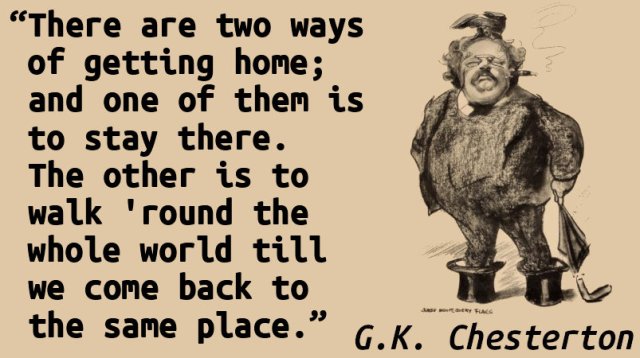Remember the classic situation comedy 'Married....With Children?' The opening titles play over the song 'Love and Marriage,' sung by ol' blue eyes himself, mob connected Frank Sinatra. The lyrics, as if you don't know, state 'love and marriage, love and marriage, they go together like a horse and carriage. Let me tell you brother, you can't have one without the other.'
I appreciate the sentiment, to be sure, and through that lens, I understand how we get to the view that we have about 1 Corinthians 13:1-13. Love and marriage, love and marriage, they go together like a horse and carriage... 1 Corinthians 13 is a passage that talks about love, to be sure, and it's a reading that we tend to associate with weddings. It's that way to the point that a movie that I really don't like, Wedding Crashers, has a side bet going that the reading will be First Corinthians 13. Like they're so sure about it that they're willing to put money on it.
Love is patient, love is kind, and so on and so on. Such a wedding reading that you can feel confident about calling your shot that early. I've done the odd wedding in my day, but I don't think I've ever seen the Colossians 3:12 alternate reading proposed in the clip above. 1 John 4, sure, but not Colossians 3. You know what else I rarely see? Ephesians 5:22-33. That's funny, of course, because in Ephesians, the instructions are literally for married couples. I can't say the same about 1 Corinthians 13, or Colossians 3.
Quite the opposite, actually. Those readings, Colossians and 1 Corinthians, aren't (only) about marriage. To be fair, they apply to marriage as well, but only insofar as they apply to essentially all human relationships. And this is where we run up against the opening theme mentioned above. Love and marriage, love and marriage, go together like a horse and carriage, let me tell you, brother, you can have one without the other. We tend to do ourselves a great disservice when we have only one flavour of love - which leads to marriage, inevitably.
But, for the Christian, love is not a romantic thing only. There is romantic love, to be sure, and it can be good, honorable and God-pleasing, but it's not the only type of love out there. And a big chunk of your life is spent around people with whom you are not in any kind of romantic relationship, nor do you wish to be. Yet you are still called upon to love those people. But if not romantically, then how?
First things first, you have to get past the idea that the epistle reading, from 1 Corinthians 13, is all about marriages only. It's telling you how to love other people, and that's hard to do. Love isn't an action or emotion that you reserve only for a romantic partner - the general principles of love apply to everyone. The opposite works as well, by the way. There are passages in the scriptures like Matthew 25 that tell you how you should treat the least of these - that applies to those who are directly around you all the time as well. This is a shocker to most of us - we assume that when Jesus is talking about the hungry, the naked, the sick, that these are all people whom we we will essentially never meet. They're the mythical poor, of whom we can absolve ourselves of any responsibility by having the right opinions, meanwhile there are people in our daily lives who will be very needy indeed, and we tend to walk on by. If we do provide for them, we do so resentfully, without realizing that this passage applies to everyone. In that way, you can't have the right opinion about a particular class of people all the while never seeing them, meanwhile doing nothing about the people whom you see in front of you all the time.
One Corinthians says this too. It's not the narrow band that it keeps getting pictured as, just applying to marriages. There are a lot of people you are going to encounter on a daily basis, most of whom aren't your spouse. But they are your neighbors. Your spouse is your neighbor too, by the way. But all these people are people whom you've been called by God to love, and you, as a Christian, have to figure out how to put that love into practice. It's not supposed to be theoretical. Even we Christians don't think too often about loving our teachers, or students, or servers, or anything like that, but we're called to do it. And because our notion of love only exists in a very narrow band, we tend to get perplexed, and resort to politeness, or something like that, instead of love. But we're called to love them.
Around such people, we are supposed to be patient, and kind. We are supposed to hope all things, believe all things, endure all things, etc. Those are instructions for life, not just for intimacy. Yes, you're supposed to love your spouse differently than you love your waitress (please, for goodness sake, don't get that wrong), but in application not in principle. The underlying principles of love don't change based on who they are applied to. And that's part of the reason that church attendance, Bible reading, and all that are as important as they are - if you're only around a church when it's wedding season, like the Wedding Crashers, you would end up assuming that love is something confined to a marriage. But it's not. It's a matter of universal principles that are to be applied to your neighbor, waitress, spouse, children, parents, whoever.
Understanding this is great. For when the Bible tells you to love your neighbor, it sort of just drops that on you and expects you to figure it out. Until you realize that there are specific, principled instructions that are right there, and there for you to follow. And these are the principles through which Jesus Christ our savior loves us. Not seeking his own way, bearing all things and believing in us. And like with everything else, we love because he first loved us.

